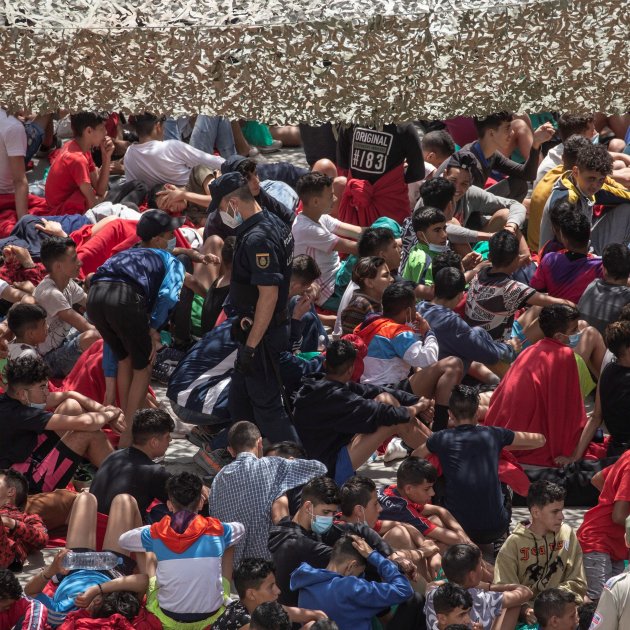The arguments and controversy continue over the repatriation of the Moroccan children who arrived in the Spanish enclave city of Ceuta in the migration crisis last May. After an interim court injunction on Monday halted the process for three days, Spain's interior ministry has now assured the National Audience court that "there is no official record or instruction" to initiate these repatriations in the files of the department headed by Fernando Grande-Marlaska.
In a letter addressed to the administrative disputes chamber hearing the case, the secretary of state for security, Rafael Pérez, argues that the document which the court has requested is a letter dated August 10th that "only states that the interior ministry requests that the return of the minors be carried out respecting their interests or rights."
Thus, according to Pérez, "as there is no administrative activity by the interior ministry which can be challenged", the National Audience should refuse to admit the appeal filed by the Spanish Network of Immigration and Refugee Aid, which was the group that requested the precautionary suspension of the deportation of the minors.
Inadmissibility and incompetence
With regard to these requests, the Spanish ministry sought to clarify that the order "was not issued" by the interior ministry, and therefore the National Audience is not competent. Accordingly, the Spanish government insists that it was the government of Ceuta itself which requested "the implementation of the agreement" between Spain and Morocco and, in response, the interior ministry drafted the quoted letter.
Yesterday, the minister Marlaska spoke out again in defence of the handling of the repatriations, assuring that they are being carried out with all required guarantees and in accordance with the cooperation agreement signed in 2007 between Spain and Morocco to prevent the illegal migration of minors and to create a system for their return.
In addition, he asserted, the Spanish government is not carrying out expulsions, but "assisted returns for the benefit of the child" because the aim is to "restablish their family and cultural life." In this regard, he characterised his ministry is just one "link in the chain", as the returns are the result of "inter-institutional coordination".
The PP rescues Marlaska
The minister has also been defending, since the deportation of the hundreds of minors began last Friday, that it was a decision by the autonomous city. As he explained, it is the government of Ceuta which has the guardianship of the minors, and therefore is responsible for determining whether, in each case, the act of returning them to their family is in their interest. Yesterday, the president of Ceuta, Juan Jesús Vías (Popular Party), said he was "convinced" that the action taken on the returns was legal. In statements that could help Marlaska's argument, Vías says that "if there is anyone politically responsible for the decisions taken, it is me."
Paralyzed by the court
In any case, due to the large number of apparent irregularities and administrative confusion, on Monday evening a court in Ceuta ordered a halt to "all returns" of migrant minors to Morocco for the next three days "until it is verified how the procedure has been carried out". This deadline ends on Thursday.
